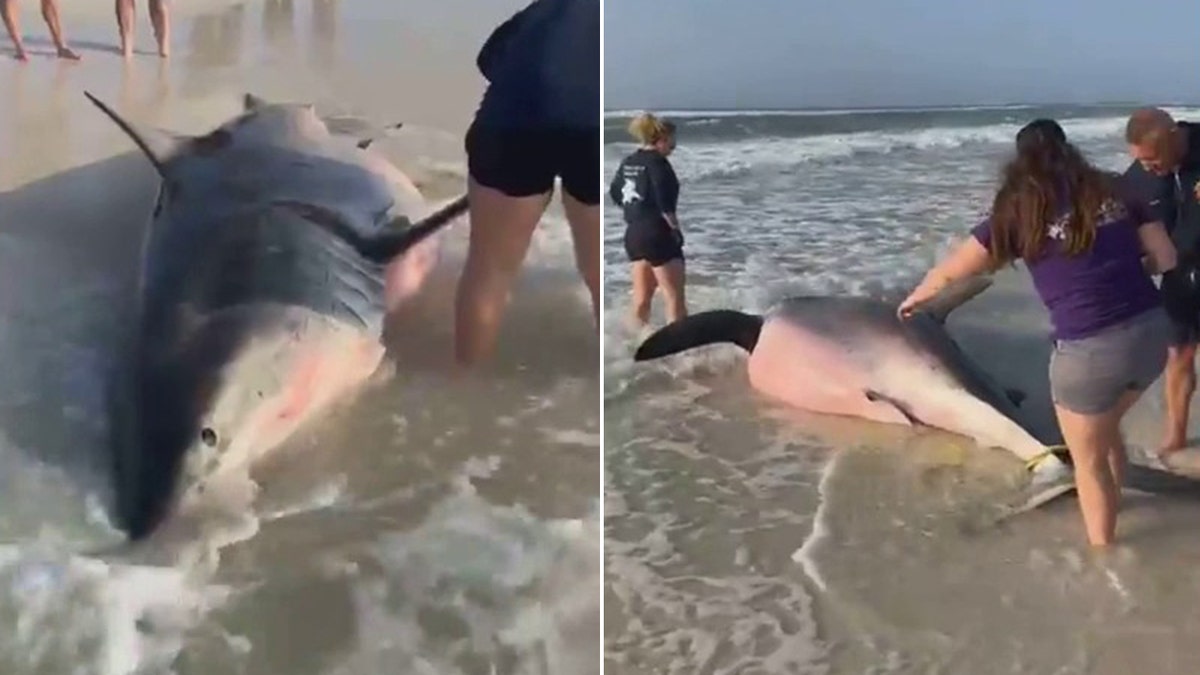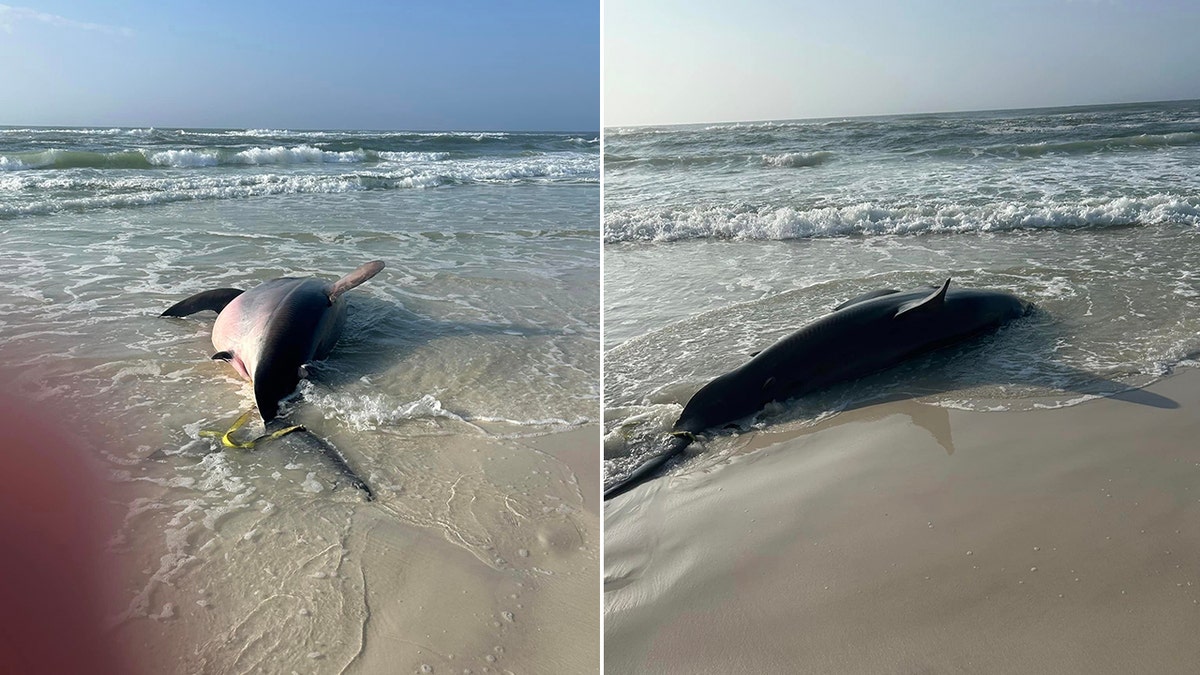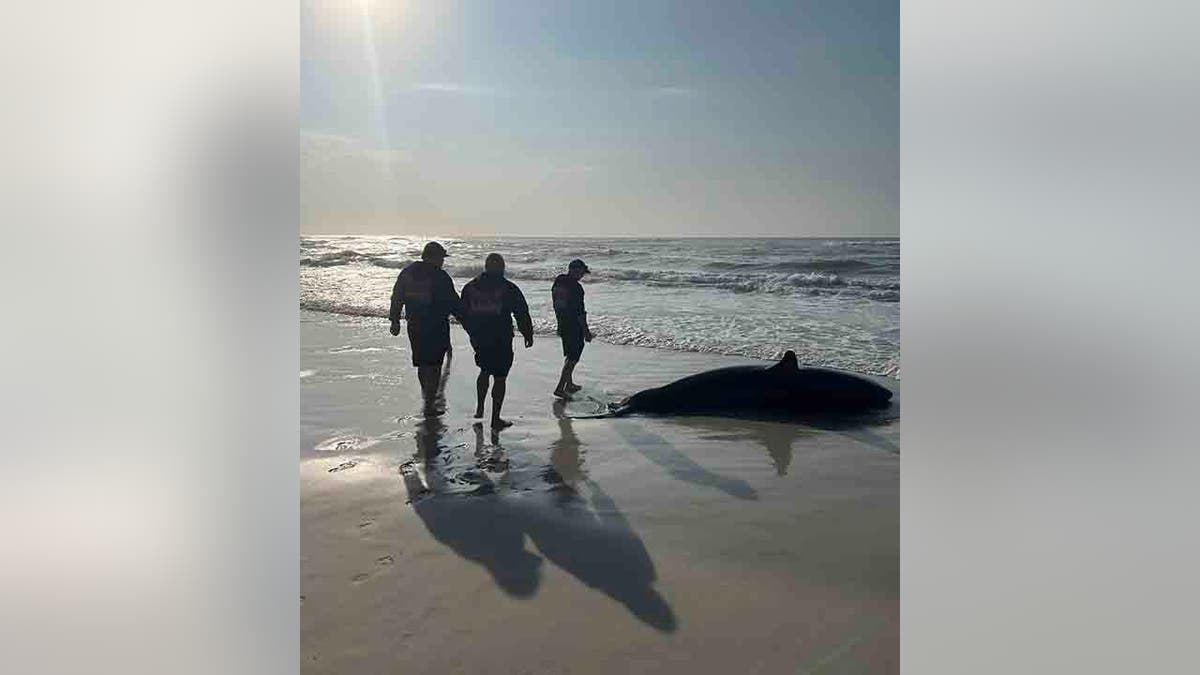Pregnant great white shark washes up on Florida beach
A dead great white shark washed up at Navarre Beach in Florida, where officials determined the shark was pregnant. (Credit: South Santa Rosa News via Storyful)
A great white shark caused a stir at a Florida beach on Thursday when its pregnant carcass washed up on shore.
The pregnant shark, which measured between 13 and 15 feet long, showed up on land at Navarre Beach in the Florida Panhandle, about 25 miles east of Pensacola, Navarre Beach Fire Rescue said.
South Santa Rosa News captured video of officials investigating the carcass as waves crashed onto the beach.
While the shark's cause of death was unclear, Navarre Beach Fire Rescue District Fire Chief Danny Fureigh told the outlet that some hooks were found in its mouth.

The great white shark was reportedly pregnant and measured between 13 and 15 feet long. (South Santa Rosa News via Storyful)
A team with the National Oceanic and Atmospheric Administration investigated, but no details were immediately provided, WEAR-TV reported. It was unclear whether the shark was tagged.

No details about how the shark is suspected of dying were immediately provided. (Navarre Beach Fire Rescue)
Fire crews in Santa Rosa tied a rope to the shark and eventually removed it from the beach.
‘FIRST-EVER SIGHTING’ OF NEWBORN GREAT WHITE SHARK POSSIBLY CAPTURED IN CALIFORNIA
Shark activity reaches its peak in Florida waters between April and October, according to the Florida Fish and Wildlife Conservation Commission.

Fire officials in Santa Rosa eventually removed the carcass of the great white after a team from the National Oceanic and Atmospheric Administration investigated. (Navarre Beach Fire Rescue)
Many sharks migrate in and out of Florida's waters each year, the agency says, with migrating sharks typically moving inshore and north in the spring and summer, and offshore and south in fall and winter months.










































